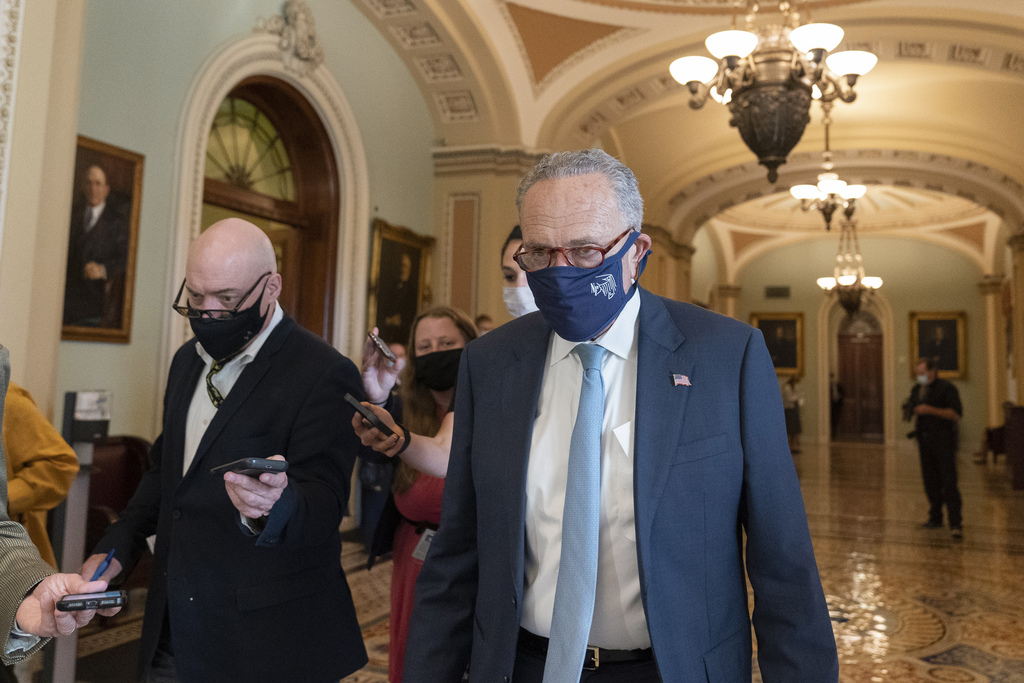By Clare Foran and Ali Zaslav | CNN
The Senate voted Thursday evening to extend the nation’s debt limit through early December after Democrats and Republicans reached a deal to avert economic disaster following weeks of partisan deadlock over the issue.
The House will next have to approve the extension before it can be sent to President Joe Biden for his signature.
Senate Majority Leader Chuck Schumer announced Thursday morning that a deal had been reached, paving the way for the final vote later in the day. An aide familiar with negotiations told CNN that the deal is to increase the ceiling by $480 billion, which is how much the Treasury Department told Congress it would need to get to December 3.
The announcement came a day after Senate Minority Leader Mitch McConnell publicly floated a debt ceiling proposal, which sparked negotiations between the two parties to reach an agreement.
Both parties have made clear that the country must not default and that even coming close to it would likely bring catastrophic economic consequences.
Yet while the debt limit extension stands to avert immediate economic disaster, it does not resolve the underlying partisan stalemate over the issue. It merely delays the fight until another day.
Republicans have been insistent that Democrats must act alone to address the debt limit through a process known as budget reconciliation. Democrats have argued the issue is a shared bipartisan responsibility and that process is too lengthy and unwieldy and that the risk of miscalculation would be too high.
That fundamental dispute remains, setting up a high-stakes showdown in early December.
Lawmakers will also have to deal with the expiration of government funding in the same time frame after recently passing a short-term extension to avert a shutdown that lasts only through December 3.
Ahead of the final vote Thursday evening, the Senate voted to break a filibuster on the agreement to raise the debt ceiling, which needed 60 votes to succeed. The tally was 61-38. Republican senators provided 11 votes, which when combined with those of members of all the Democratic caucus, got the Senate over the procedural hurdle.
Now, all eyes will turn to the House. Speaker Nancy Pelosi has indicated that members may need to come back to vote on the measure if it passes the Senate.
“At this writing, the Senate is engaged in hours of debate that will lead to a vote to lift the debt ceiling,” she wrote in a letter Thursday evening, adding, “Hopefully that will occur and if it is necessary for Members to return early, Leader Hoyer will give sufficient notice as promised.”
Battle lines drawnIn a sign that partisan battle lines remain clearly drawn, McConnell said on Thursday that the agreement provides Democrats with more time to use reconciliation to raise the debt limit themselves.
He argued this resolves “the majority’s excuse that they lacked time” to address it through the cumbersome budget process.
Democrats, however, have already made clear they have no desire to use the reconciliation process despite the extra time.
Treasury Secretary Janet Yellen had warned lawmakers that the federal government will likely run out of cash by October 18 unless Congress raises the debt ceiling.
But Congress may not even have that long, since the deadline is more of a best guess estimate than a set in stone deadline. That dynamic intensified pressure on both sides to reach a deal this week.










